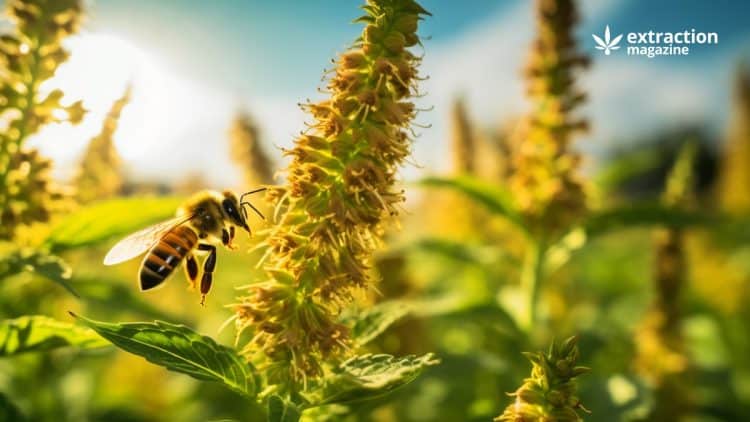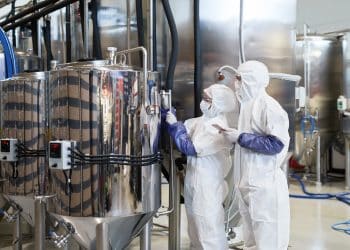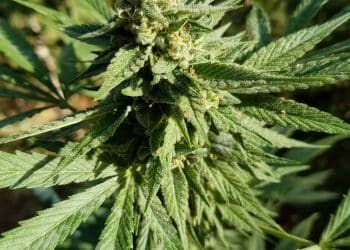Cannabidiol (CBD) is revered for its potential health benefits. Now, scientists believe those benefits may extend to honeybees as well. Researchers found that hemp extracts could be protective for honeybees exposed to neonicotinoids, the most common pesticides used worldwide.
This discovery holds significant implications for bee conservation, considering the alarming decline in global bee populations over the past 15 years, with honeybees being among the hardest hit.
Declining Bee Populations
Bees are indispensable pollinators, playing a vital role in supporting global food production and maintaining ecosystem balance. Unfortunately, bee populations have been steadily declining due to a combination of factors, including pesticide use, habitat loss, climate change, and diseases. The situation has become so concerning that it has been termed “colony collapse disorder” in some regions, signifying the abrupt disappearance of entire bee colonies.
The consequences of declining bee populations are far-reaching, affecting both the environment and agriculture. According to the Food and Agriculture Organization (FAO), over 75% of the world’s food crops depend, at least in part, on pollinators such as bees. A significant reduction in bee numbers could jeopardize the production of fruits, vegetables, nuts, and seeds.
What Are Neonicotinoids?
Neonicotinoids are “systemic” pesticides absorbed through plant roots. The entire plant, including pollen and nectar, becomes toxic to many insects.
Neonicotinoids kill bees, butterflies, and other creatures not considered pests. Some countries, including France and Canada, have restricted their use.
How Can Hemp Help?
The adverse effects of neonicotinoid pesticides on bees’ health include malnourishment, weakened immune systems, and susceptibility to diseases.
“Bees are dying because they are malnourished and weakened by the use of pesticides and then they start to suffer from various diseases… Bees cannot digest and absorb nutrients and then they simply die,”explained lead study author Aneta Ptaszyńska to The First News.
“There are reports that hemp extract protects human nerve cells; we decided to check whether it would be the same in the case of a bee.”
Starting with 5,000 bees, the researchers exposed a portion of the bees to CBD-rich hemp extract alongside neonicotinoid pesticides. Another group was exposed solely to pesticides.
Surprisingly, the bees exposed to both hemp extract and pesticides showed remarkable resilience. Their lifespan was comparable to that of bees with no pesticide exposure, indicating that the hemp extract may have a protective effect on bees, neutralizing the harmful impact of neonicotinoids.
While this discovery is a significant step forward, the researchers emphasize the need for further investigations to validate and refine the results. Collaborative efforts involving experts from various fields, such as entomologists, ecologists, and chemists, are needed to gain a real understanding of how hemp extract influences bee health and behavior.
Hemp Farming and Bee Diversity
The potential relationship between thriving hemp plants and bee populations is not entirely new. A study conducted last year revealed that hemp farms in central New York were supporting a diverse community of 16 different bee species. [1]
This finding suggests that hemp cultivation could have a positive impact on bee populations, potentially aiding in the revival of bee colonies.
The increase in hemp production in the United States and other countries could have a cascading effect on bee populations. Hemp farming offers a unique opportunity to provide bees with additional foraging resources, contributing to their overall well-being and potentially bolstering their numbers.
Conservationists and farmers are taking note of these findings and are beginning to explore ways to incorporate bee-friendly practices into hemp agriculture. This includes preserving natural habitats surrounding hemp fields, minimizing pesticide use, and adopting sustainable farming techniques that encourage biodiversity and pollinator-friendly environments.
The Importance of Bee Conservation
The decline of bee populations is a wake-up call for humanity to prioritize bee conservation and address the broader challenges of pollinator decline. Efforts to protect bees are not solely for the benefit of these industrious insects; they have far-reaching implications for the environment and food security.
The potential role of hemp extract in the conservation of bees is an exciting and promising development. With further research, this natural remedy could be utilized as a sustainable way to mitigate the effects of pesticides and safeguard bee populations around the world.
At the same time, it’s essential to recognize that protecting bees involves more than just hemp farming. The health of our bee populations is intertwined with the health of our environment, and safeguarding bees requires holistic approaches that address both.
Conclusion
The discovery that hemp extract may protect bees exposed to neonicotinoids is a promising development for bee conservation efforts. While further research is needed to fully comprehend the mechanisms involved and confirm the results, this finding opens the door to potential solutions for safeguarding bee populations and rebuilding bee colonies.
As scientists, conservationists, and farmers collaborate to promote bee-friendly practices, it is essential for policymakers and the public to support initiatives that prioritize pollinator health.
References:
- Nathaniel RF, Poveda K, Grab H. The bee community of Cannabis sativa and corresponding effects of landscape composition. Environmental Entomology. 2020;49(1):197–202. [Impact Factor:1.586; Times Cited:1 (ResearchGate)]











